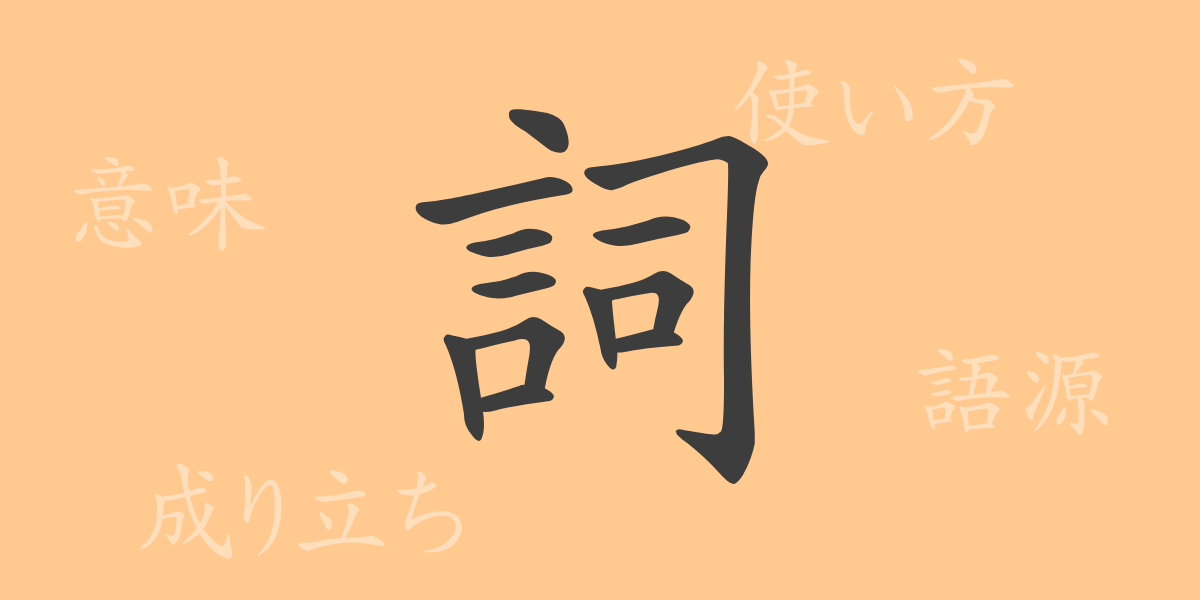The written Japanese language has the power to delicately depict emotions and landscapes. One of the key elements contributing to this rich expression is the kanji “詞(ことば)”. In this article, we will delve into the world of “詞(ことば)”, exploring its origin, meaning, usage, and even idioms and proverbs that feature this character. By the end of this article, you will have discovered the charm of “詞(ことば)” and gained a deeper understanding of the Japanese language.
Origin of 詞(ことば) (Etymology)
The kanji “詞(ことば)” originates from ancient China, representing words or phrases. The character depicts “the act of speaking words.” Historically, it was used to denote poetry and lyrics, and over time, it evolved into a kanji seen in various contexts today. This character was introduced to Japan alongside the study of Chinese literature and has since become deeply rooted in Japanese culture and language.
Meaning and Usage of 詞(ことば)
The kanji “詞(ことば)” is used to represent words or phrases, especially those found in poetry, song lyrics, or literary works. It is often used to refer to parts of literary works or words spoken on a particular theme. This kanji also appears in legal terminology and specialized contexts, demonstrating its broad range of usage.
Reading, Stroke Count, and Radical of 詞(ことば)
Here is the basic information about the kanji “詞(ことば)”:
- Reading: The on’yomi (音読み) is “シ”, and there is no specific kun’yomi (訓読み).
- Stroke count: The kanji has 13 strokes.
- Radical: The radical is 言(ことばへん), related to words and speech.
Idioms, Phrases, and Proverbs Using 詞(ことば)
There are many idioms, phrases, and proverbs in Japanese that include the kanji “詞(ことば)”. Here are a few examples:
- 詞華(しけ): Ornate language or beautiful expressions.
- 詞賦(しふ): The act of composing poetry or prose.
- 詞章(しじょう): Verses of a poem or prose.
- 辞世の詞(じせいのことば): Last words or poems left at the time of death.
- 心に詞あり(こころにことばあり): A saying meaning there are things one wants to say but cannot express.
Conclusion on 詞(ことば)
The kanji “詞(ことば)” is one of the characters that symbolize the richness of Japanese expression. From poetry and song lyrics to legal terms, its uses are diverse. The idioms and proverbs featuring “詞(ことば)” reflect the spirituality and culture of the Japanese people, showcasing the power of words to move hearts. Through this article, we hope you have gained a deeper appreciation for the depth of meaning and the allure of “詞(ことば)” in the Japanese language.

























